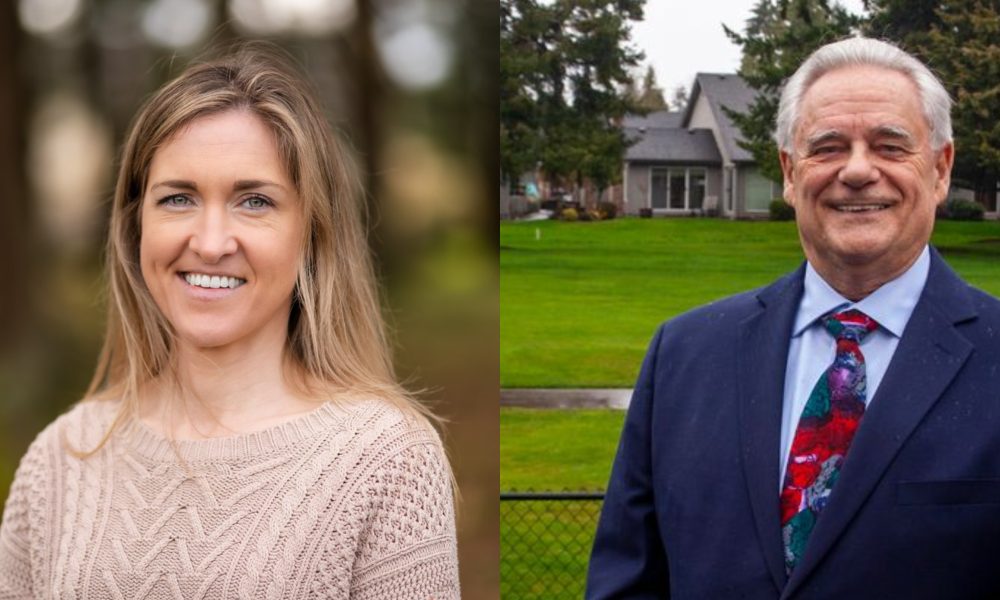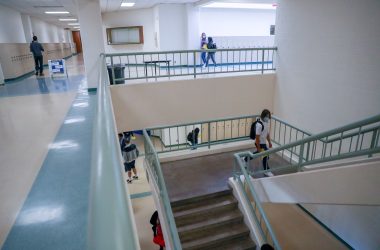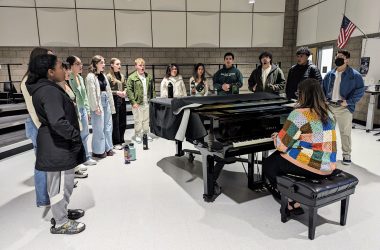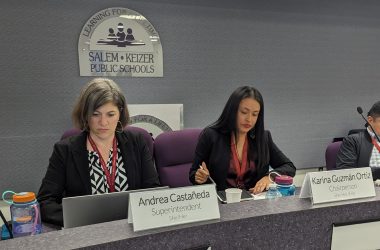Local voters get a chance to elect three school board directors on May 16, who will guide the Salem-Keizer School District as a new superintendent takes office.
Board directors oversee an annual budget of $1.3 billion and set broad priorities for the education of 40,000 local students.
This year, seats representing zone 2 in northeast Salem, zone 4 in southwest Salem and zone 6 in Keizer are up for election. All voters in the district can vote for all positions.
School board directors are unpaid volunteers who serve four-year terms. While officially nonpartisan, as in past elections, supporters and donors of the six declared candidates have come out along largely partisan lines.
Salem Reporter sent candidates a questionnaire to get a sense of their positions on major issues facing the district. Along with their responses is information about candidates’ major donors and supporters.
Responses are unedited except for formatting.
Two political newcomers are seeking the seat representing Keizer.
Krissy Hudson, 41 is a customer service representative at the Oregon Department of Justice.
Legislative records showed she testified this year against legislation that would require school districts to have students participate in surveys regarding health and well-being, House Bill 2656.
Hudson said that the bill is part of “an aggressive attempt to groom children” and “provides yet another example of the overextension of the rights of our children’s innocence and futures.”
Hudson is supported by Marion + Polk First, a conservative group who also backed a slate of candidates in 2021, and Oregon Right to Life. She’s also endorsed by Marion County Commissioner and former school board director Danielle Bethell; Commissioner Colm Willis; state Senator Kim Thatcher, a Keizer Republican; and current board directors Satya Chandragiri, who’s seeking re-election, and Marty Heyen.
Larry Scruggs, 79, is retired after spending most of his career as an administrator at the University of Portland. He was also a substitute teacher in the Salem-Keizer School District.
Scruggs said he was approached by local Democrats about running for the seat, despite being a registered independent voter for years. He sought the endorsement of Community for Salem-Keizer Schools, a coalition of liberal groups including the political action committees for the Salem-Keizer Education Association, the local teachers union, and farmworker union PCUN.
Scruggs said he was unsuccessful because one member of the group raised concerns that he worked as a police officer in Ashland decades ago.
He is endorsed by Progressive Salem and the Marion County Democrats.
Krissy Hudson
How long have you lived in the Salem-Keizer School District?
I was born and raised in the Salem-Keizer area and have lived here ever since.
Do you have any children currently in the district, or children who have graduated from the district? If so, please list their current grade(s) or graduation year(s).
I have two daughters, one in the 10th grade and one in 7th grade. Both go to schools in Salem-Keizer.
Please describe your previous experience with K-12 education or issues. This could include paid or volunteer work in schools or with youth, work in a related organization, or service on committees, boards, task forces, booster clubs, etc. Please include the year(s) for the work or service.
I have volunteered in various ways in the Salem Keizer school district since 2011. I was asked in 2012 to lead groups of kindergarten students and instruction for three days a week for the school year. I’ve also served at Gilbert House children’s museum in Salem from 1998 through 2000 and as a coach for the Keizer soccer club for two seasons from years 2015 through 2017.
Describe one volunteer circumstance where you held a leadership position and used that position to accomplish a specific goal. This is intended to share with readers a concrete example.
As an aid in the classroom, I was assigned with the task of instructing groups of children at a Math station during the class’s math sessions. I then continued working with students to prepare for and take math quizzes through 2016 when I increased my time on the Parent Club, until 2019.
What one issue motivated you to run and how would you address that as a board member?
Our district spends $1.4 billion on our schools. That’s the second largest school budget in the state. Yet my daughter is years behind her grade level. My heart breaks to know that I’m not the only parent who is struggling with the same issues that I am. My priority is to improve educational outcomes without reducing academic standards, and to refocus on teaching the basics.
What duties do you see rest solely with the school board separate from the superintendent and executive district leadership?
The school board’s purpose is to set the direction and vision based on feedback from the community. It is up to the superintendent and district leadership to take that direction and vison and implement it to the best of their ability. If the board thinks that the superintendent or district leadership is stepping out of line against their direction, then it is up to the school board to instruct them to change course.
What skill would you to bring to help board members resolve policy differences that divide the board or do you think instead such significant differences can’t be resolved?
People generally have very different views and policy differences. We won’t always see eye to eye, and that’s okay. I think healthy and respectful dialogue and debate among school board and community members is exactly how the system is designed to operate. But I think we can come together on the essentials: improving safety and educational outcomes. Kids must come first!
I think my experience working as a state employee in many challenging customer service roles will sufficiently equip me with the ability to navigate respectful disagreement when that happens.
The board has a specific policy to consider underserved, diverse, and marginalized individuals and groups when deciding school policies (often called the “equity lens”). How do you see that policy fitting into decisions you would make as a board member?
Many students come from backgrounds with serious challenges. As a board we absolutely should be investing resources into addressing the needs of all students who are struggling to learn. Our goal as a district should be to have every student achieve as much as they are individually capable of accomplishing. That doesn’t mean we should lower standards as has happened—it means we should be working as hard as we can to help all students succeed.
What is your understanding of student district reading scores compared to state and national figures and what issue does that create for the board?
Salem-Keizer has one of the worst reading and language arts scores in the state and nationwide Oregon ranks nearly last in almost every statistical category. This means that our district is one of the lowest preforming school districts in the nation.
To me that is a clear message that something must change. I think we need to relook at some of the curriculum and teaching methods we are using and evaluate them to make sure that they are working to accomplish their intended goal. Some of the curriculum I’ve seen my girls bring home didn’t seem to be focused enough on teaching the basics or challenging enough for them to achieve academic success.
What issue of school safety would you urge the board to address if you were elected?
I would start by bringing back School Resource Officers to all our campuses. My daughter had two concussions within one week because of bullying incidents before SROs were removed. Thankfully an SRO stepped in and resolved that situation where the teachers and staff were unable to. Today that is impossible because the district removed trained law enforcement from our campuses.
I think SROs are critical to not only handling outside threats to our kids but also resolving internal issues such as bullying, student violence, and drug use on our campuses.
What role do you see for the school board in vetting and approving book selections both for school libraries and classrooms?
My experience as a parent trying to get information on curriculum and what’s happening in the classroom showed me that our district is not friendly to parents.
We all want schools to provide the very best for our children. To that end, it is extremely important for parents to be active in their children’s education. But that will not happen if you have to do a public records request to find out what is happening in your child’s classroom!
To start, all school curriculum should be available online for parental review.
The school board should absolutely be involved in reviewing approving curriculum. The board is the only group of people elected by voters, and as such as a key oversight role. It should identify the more commonly controversial areas of curriculum for parents and change district policy to require parents to opt-in to those areas to ensure total transparency. After all, every child and every family is unique.
A new superintendent will start the same day the new board takes office. What should that superintendent’s top priority be and why?
The superintendent’s top priority should be to identify what and why students are struggling to learn at their age level and then prioritize resources to directly address those students who are struggling the most to achieve their very best.
Larry Scruggs
How long have you lived in the Salem-Keizer School District?
10 Years
Do you have any children currently in the district, or children who have graduated from the district? If so, please list their current grade(s) or graduation year(s).
No
Please describe your previous experience with K-12 education or issues. This could include paid or volunteer work in schools or with youth, work in a related organization, or service on committees, boards, task forces, booster clubs, etc. Please include the year(s) for the work or service.
21 years at the University of Portland as Director of Auxiliary Services: Responsible for the bookstore, public safety, hazardous materials, parking, conference office, Chiles Center Arena, facilities coordination, space allocation, project manager for major projects, and the campus facilities master plan
3 years as Vice President for Operations, Raz Transportation, who ran school buses for various private schools.
2 years as Substitute Teacher in the Salem-Keizer School District.
3 years Member of the School Board at Central Catholic High School in Portland.
3 years as a police officer for the City of Ashland, Oregon.
Describe one volunteer circumstance where you held a leadership position and used that position to accomplish a specific goal. This is intended to share with readers a concrete example.
As the Chair of the City of Portland Noise Review Board we had an ongoing battle between the North Portland Neighborhoods and Portland International Raceway over the noise at the racetrack. Being the chair, and a resident of North Portland, and a Rose Festival Director (the Rose Festival ran two big weekend races at the track), I was able to negotiate an agreement between the parties which allowed four major events at the track each year and minimized noise impacts on the neighborhoods the rest of the year.
What one issue motivated you to run and how would you address that as a board member?
My family has been involved in education for years. Aside from my experience, my wife was the registrar at St. Mary’s Academy in Portland for 26 years, our sone was a Police SRO in Tigard, our daughter teaches middle school in Springfield, and our granddaughter teaches 2nd grade in Bend. I began substitute teaching in Salem-Keizer last year when the district was begging for subs. While in the classroom I noticed that there are issues which need to be addressed.
I am running because I want to ensure that all our children receive an education that provides them with the skills necessary for life, adulthood, and whatever endeavor they choose. I want to ensure that there is equivalent curriculum in the schools, that they receive the basic skills such as reading and writing, and that they can prepare for future education or technical or vocational employment as they choose.
What duties do you see rest solely with the school board separate from the superintendent and executive district leadership?
The school board establishes the mission, vision, values, goals, objectives, and strategies for the school district. It hires a superintendent to implement them and to educate our children. The school board then evaluates the superintendent to ensure that the students are receiving the education. The school board manages the superintendent. The superintendent manages the schools.
What skill would you to bring to help board members resolve policy differences that divide the board, or do you think instead such significant differences can’t be resolved?
Over the years I have negotiated with neighborhood associations, city bureaus, politicians, differences within boards and associations, and with children. I believe that anything can be resolved through negotiation. The important thing is that each side must listen to the other to determine what is important. Once those cards on the table you can begin the give-and-take. You can’t negotiate with absolutes. But if you can each side to acknowledge the credibility of the other, and to see the gray areas that always exist, you can reach a settlement.
The board has a specific policy to consider underserved, diverse, and marginalized individuals and groups when deciding school policies (often called the “equity lens”). How do you see that policy fitting into decisions you would make as a board member?
The board must determine that the district and its policies serve all students within the district.
What is your understanding of student district reading scores compared to state and national figures and what issue does that create for the board?
Reading scores are low across the country, and very low in our district. The board needs to ensure that the superintendent has the funding to bring those scores up to a level approved by the board. That will take more teachers, and especially more teacher aides who can help provide the individualized instruction necessary to rectify this problem.
What issue of school safety would you urge the board to address if you were elected?
Students need to feel welcome, wanted, appreciated, and understood in the schools. My experience in the schools these past two years has been that the security people are doing a good job protecting and encouraging our students. But more security people are necessary to ensure the safe environment exists. I would also add that more teachers would help by reducing class sizes to make them more manageable and provide more individualized instruction.
What role do you see for the school board in vetting and approving book selections both for school libraries and classrooms?
The school board establishes the values for the school district to follow. The superintendent ensures that those values are maintained throughout the district. The teachers select the books they want to assign for their classes and ensures that they meet the values of the district. The librarians select books for their libraries and ensure that those values are maintained. There will always be differences of opinion about the books selected. Individual parents have the right to object to and prohibit their children from reading a specific book. That’s their right. But individuals don’t have the right to establish a reading list for the district. That’s within the purview of the school superintendent and the administration.
A new superintendent will start the same day the new board takes office. What should that superintendent’s top priority be and why?
The superintendent takes office July 1. School starts the day after Labor Day. Her priority must be getting up to speed on preparations for the opening of the schools and the start of the school year. During her interview and acceptance process she should have already reviewed the plans for the district, its mission and vision, and its priorities for the coming year. After the meet and greet it’s time to go to work to get the schools up and running.
Campaign money
Here are totals for each campaign as reported by the state Elections Division as of April 26. To look into individual donations and expenditures, start with this state website: Campaign finance.
Hudson
Contributions: $8,145.73. Expenditures: $7,880.33. Cash balance: $265.40.
Top five donors: Marion + Polk First PAC, $5,043.27 in-kind; Oregon Right to Life PAC, $2,318.62 in-kind; Kabrina Backer, $333.84 in-kind; Friends of Danielle Bethell, $175 in-kind; Kim Thatcher, $150
Scruggs
Contributions: $5,558. Expenditures: $1,140.13. Cash balance: $4,417.87.
Top five donors: Marion County Democratic Central Committee, $400 in-kind; Michael Hughes, $300; Victor Dodier, $250; William Scruggs, $250; Paul Krissel, $250

Rachel Alexander is Salem Reporter’s managing editor. She joined Salem Reporter when it was founded in 2018 and covers city news, education, nonprofits and a little bit of everything else. She’s been a journalist in Oregon and Washington for a decade. Outside of work, she’s a skater and board member with Salem’s Cherry City Roller Derby and can often be found with her nose buried in a book.









